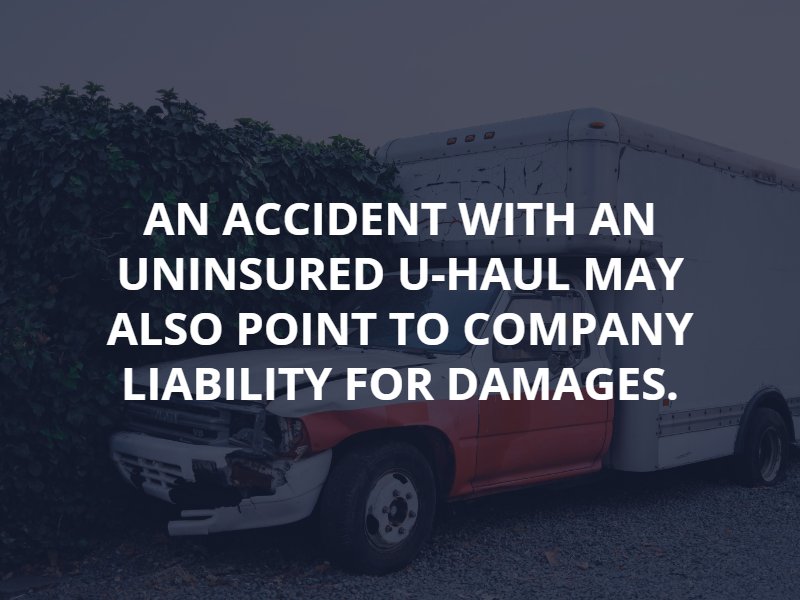A U-Haul is a popular brand of truck people rent to transport items, typically during a move. A driver does not need any special training or a commercial license to rent a U-Haul. A U-Haul can be up to 26-feet long and can hold 7,400 pounds. Large U-Hauls can also tow trailers, adding to the total length and weight of the vehicles. Unsafe and unqualified drivers could cause catastrophic accidents from behind the wheels of U-Hauls. If a driver causes a collision, victims in California may have grounds to file claims for damages. Understanding where to file a claim if the U-Haul driver did not purchase insurance may take help from an experienced accident attorney in Los Angeles.
Does The U-Haul Driver Have Insurance?
Every driver in the state of California must carry minimum amounts of car insurance. Drivers must have at least $15,000 per person and $30,000 per accident in bodily injury coverage, plus $5,000 in property damage liability insurance. A driver’s insurance will cover the vehicle listed on the driver’s policy. In most cases, automobile insurance will also cover a rental vehicle. A driver’s liability insurance will most likely pay for your medical bills and vehicle damages after a U-Haul accident, even if the driver did not purchase additional insurance for the rental. Many insurance policies, however, list box trucks as exceptions.
Find out if the driver’s personal automobile insurance will cover your damages by calling the driver’s insurance company after a wreck. Get the driver’s full name, contact information and insurance information at the scene of the accident. Call the insurance provider and explain that its policyholder was operating a U-Haul without additional rental insurance at the time of the collision. The insurance company will either accept your claim and offer a settlement or deny coverage.
If the driver’s insurance company says it cannot cover your damages due to restrictions or exceptions on the policy, you may need to seek coverage from a different source. Your auto insurer may provide uninsured/underinsured motorist insurance if you have this type of coverage, for example. If the insurer is denying culpability because it says its policyholder was not at fault, however, speak to a lawyer to try to prove your side of the case during insurance negotiations.

U-Haul as a Company Could Also Be Liable
An accident with an uninsured U-Haul may also point to company liability for damages. The company could be responsible for paying your related bills if it contributed to the crash through an act of negligence. If an investigation finds that bad brakes or other equipment failures on the U-Haul caused the accident, for example, U-Haul itself could be liable for failing to properly maintain or repair its fleet vehicles.
Even if the U-Haul driver did not purchase insurance, U-Haul could be liable for accidents it causes or contributes to in California. U-Haul carries insurance for just such reason – to protect itself from bankruptcy if an injured party brings a lawsuit against the company. After your accident, contact U-Haul’s insurance carrier to file your claim. You or your attorney will have to prove U-Haul’s negligence or fault for the accident to secure a settlement award.
A Third Party is Liable
Some U-Haul accidents stem from a third party’s fault. A third party is someone not directly involved in the collision. Common third parties involved in U-Haul accidents include U-Haul part manufacturers, maintenance companies, property owners, professional movers and the city or state government for an unsafe roadway. If a third party contributed to your U-Haul accident, it may owe you compensation for your damages. California is a fault-based car insurance state, meaning you or your lawyer will have to identify fault before bringing a claim. Hire an attorney for assistance with your uninsured U-Haul accident claim.